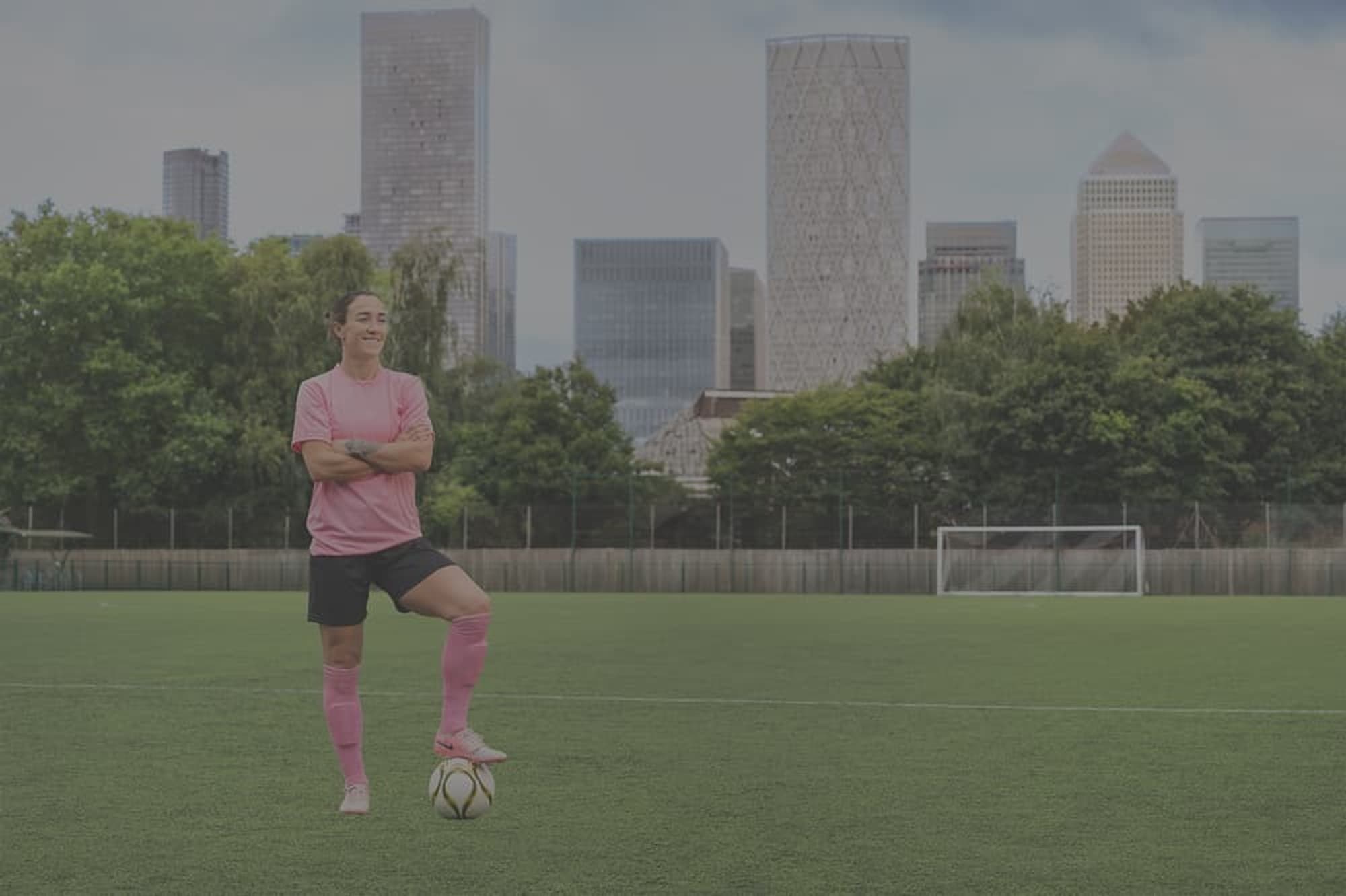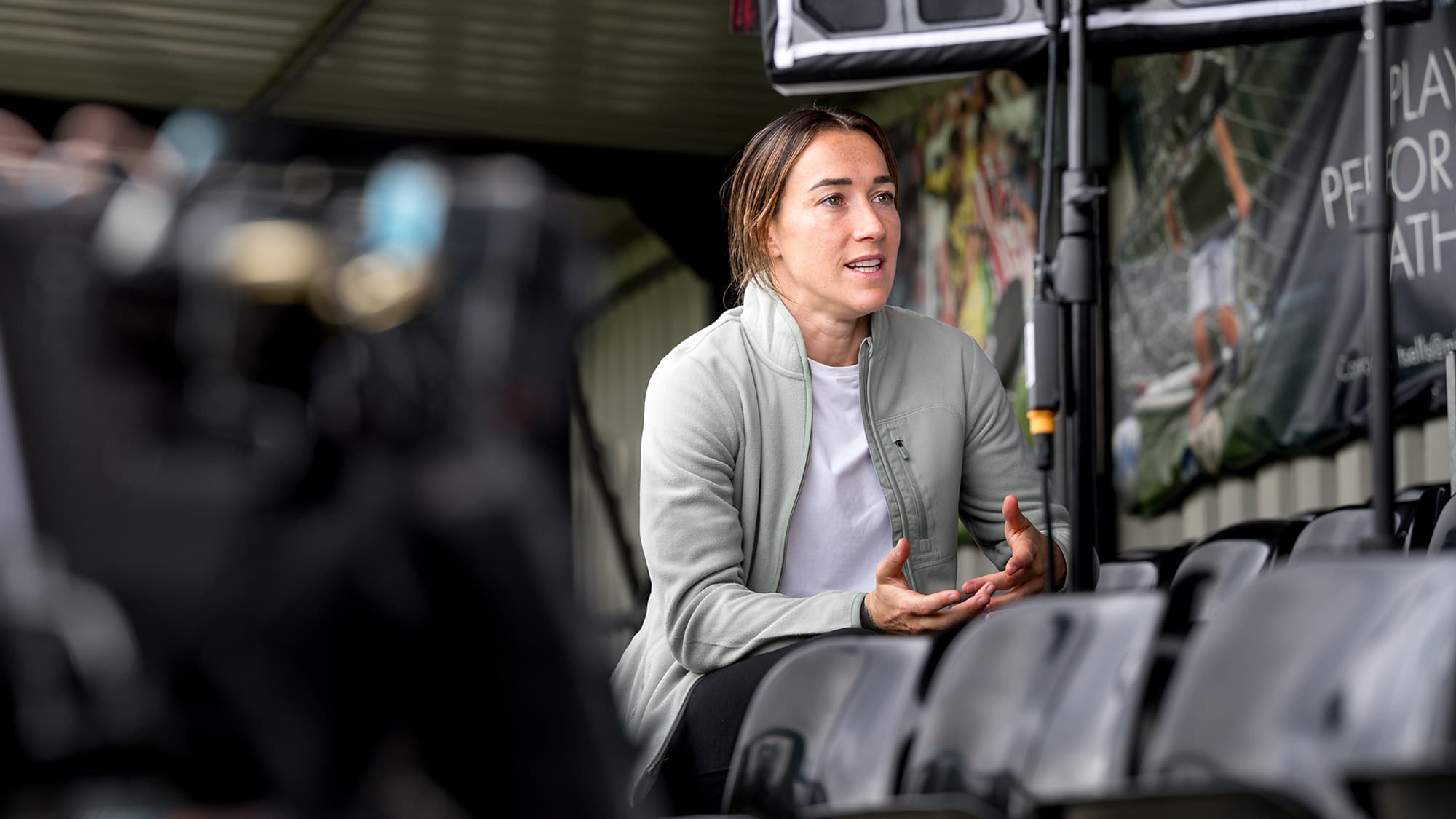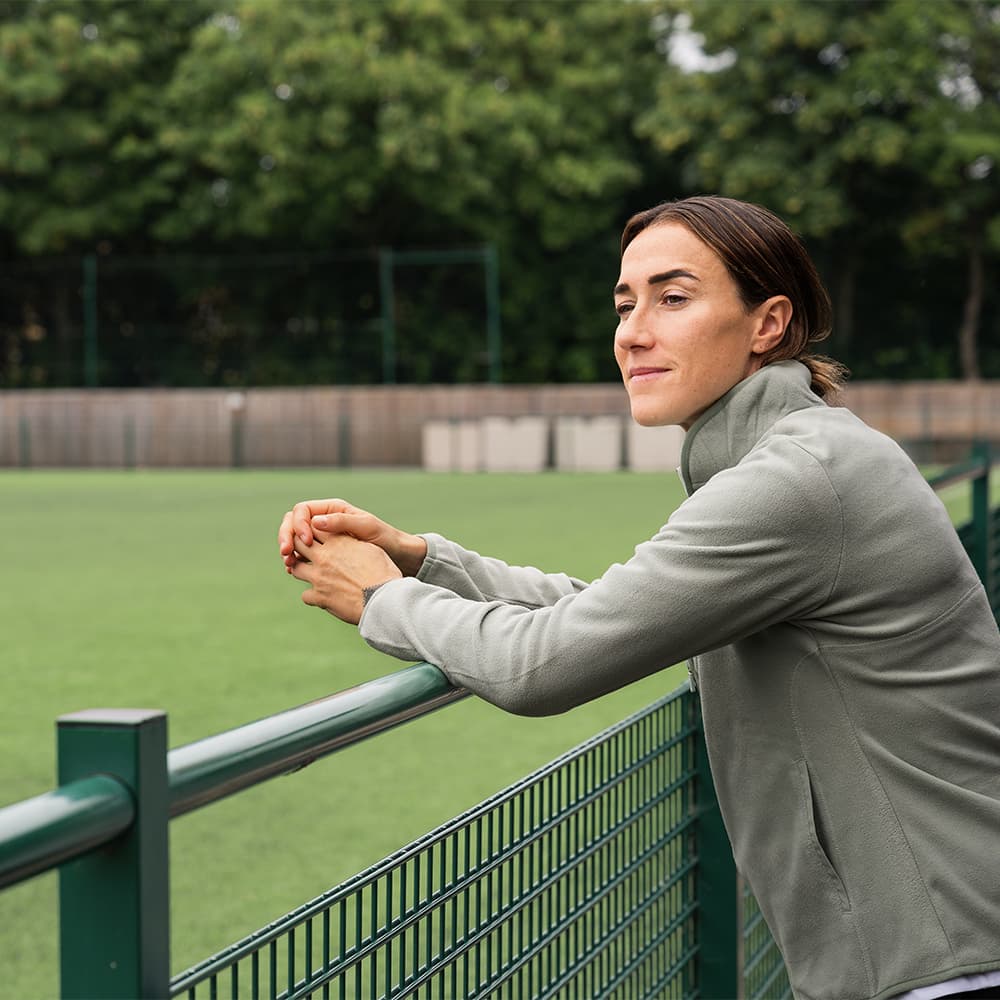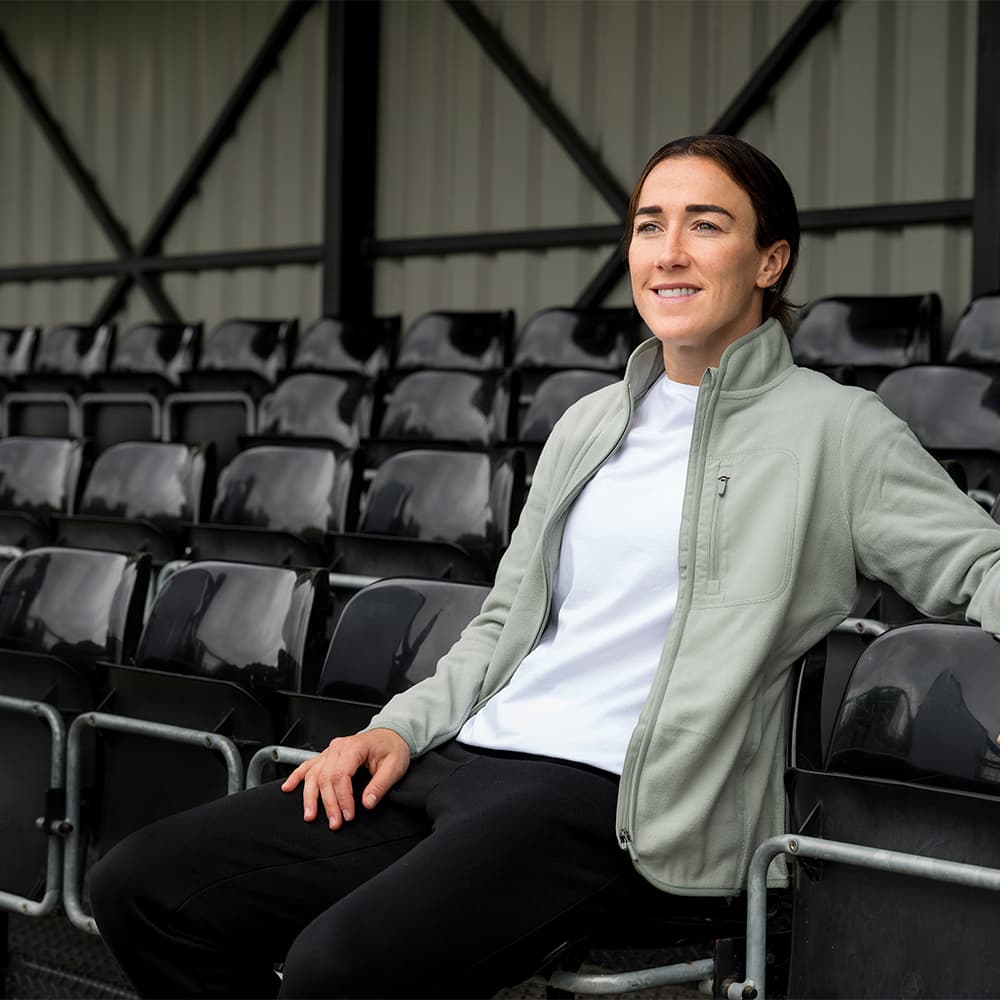Meet professional international footballer Lucy Bronze, MBE
Hi, I’m Lucy Bronze, MBE, winner of the Euros and 5 Champions League titles.
I’ve struggled with the hassles of playing football and living my life with glasses from a young age, and from my teenage years with the hassles of contact lenses. I have now achieved visual freedom with the EVO ICL.
Hi, I’m Lucy Bronze, MBE, winner of the Euros and 5 Champions League titles.
I’ve struggled with the hassles of playing football and living my life with glasses from a young age, and from my teenage years with the hassles of contact lenses. I have now achieved visual freedom with the EVO ICL.

What led me to EVO ICL
I’ve won the Euros and 5 champions leagues, but I always had that worry on the pitch that my contact lenses might fall out, and mid game, it actually happened.
Not to mention the tired, dry eyes, uncomfortable lens fits and daily hassles.
I realised I needed to tackle my vision.
I have often dreamed of getting my vision corrected so I no longer had to bother with glasses or contact lenses. Until I heard about EVO ICL I was not convinced I should take the plunge, as a professional footballer my vision is everything.
I looked at the options to correct my vision long term, and EVO ICL really stood out. The other procedures just didn’t look as good to me.
EVO is designed to be a permanent vision correction solution, so no daily maintenance or periodical replacement is required. One thing that appealed to me is that it’s a reversible lens implant, so if ever necessary, the lenses can be removed by my consultant.
Having that flexibility for the future provided me with the peace of mind I needed to make the decision. EVO is additive; it doesn’t remove any corneal tissue with lasers, so it’s in complete harmony with my natural eye – my eye is still the same, my eye.
Life Changing
Professional Footballer
Off the Pitch
I first discovered that I needed glasses when I was about 9 years old. I was often losing or breaking my glasses while playing football. When I became a teenager, I began wearing contact lenses for when I was playing sport. I had quite a few problems with contact lenses, including tired and dry eyes, as well as uncomfortable lens fits. I couldn’t wait to get home so I could finally take them out and rest my eyes.
My eyesight is everything to me, so I needed to feel the benefit was greater than any potential risk.
I wasn’t nervous about the EVO procedure, I was just excited, it was something that I’d wanted for so so long. The procedure was even better than I expected; it was pain free and super quick for me - it’s simple.
My recovery was unbelievable, I was back playing sports, training and playing football within 2-3 weeks.
Lucy Bronze has EVO ICL lenses and is sponsored by STAAR Surgical.

Questions With Lucy
What do you do for a living?
I am a professional footballer, playing league, European and international games.
How long have you had problems with your vision?
I first discovered that I needed glasses when I was about 9 years old. I was often losing or breaking my glasses while playing football. When I became a teenager I began wearing contact lenses for when I was playing sport, which also had their challenges and hassles.
What’s your biggest pain point about wearing contacts?
I had quite a few problems with contact lenses, as any contact lens wearer will tell you, after a few hours of wear you start to feel irritated with dry eyes, you’re rubbing your eyes, and waiting to get home so you can finally take your lenses out and put your glasses on for a moment. It’s like when you take your shoes off at home and get to put your feet up. That was that feeling of, “I get to take my lenses out finally”. Not to mention the worry that a lens might fall out during a game, which actually happened during a league game.
What about EVO ICL helped make your decision?
Aside from the sharp, clear vision you can get - EVO is designed to be a permanent vision correction solution, so no daily maintenance or periodical replacement is required. One thing that appealed to me is that it’s a reversable lens implant, so if ever necessary, the lenses can be removed by my consultant. Having that flexibility for the future provided me with the peace of mind I needed to make the decision. EVO is additive; it doesn’t remove any corneal tissue with lasers, so it’s in complete harmony with my natural eye – my eye is still the same, my eye.
Important Safety Information
The ICL is designed for the correction/reduction of myopia in patients, 21 to 60 years of age, ranging from -0.5 D to -20.0 D with or without astigmatism up to 6.0 D and the correction/reduction of hyperopia in patients, from 21 to 45 years of age, with hyperopia ranging from +0.5 D to +16.0 D with or without astigmatism up to 6.0 D. In order to be sure that your surgeon will use a ICL with the most adequate power for your eye, your nearsightedness, farsightedness and astigmatism should be stable for at least a year before undergoing eye surgery. ICL surgery may improve your vision without eyeglasses or contact lenses. ICL surgery does not eliminate the need for reading glasses, even if you have never worn them before. ICL represents an alternative to other refractive surgeries including, laser assisted in situ keratomileusis (LASIK), photorefractive keratectomy (PRK), incisional surgeries, or other means to correct your vision such as contact lenses and eye glasses. Implantation of an ICL is a surgical procedure, and as such, carries potentially serious risks. The following represent potential complications/adverse reactions reported in conjunction with refractive surgery in general: additional surgeries, cataract formation, loss of best corrected vision, raised pressure inside the eye, loss of cells on the innermost surface of the cornea, conjunctival irritation, acute corneal swelling, persistent corneal swelling, endophthalmitis (total eye infection), significant glare and/or halos around lights, hyphaema (blood in the eye), hypopyon (pus in the eye), eye infection, ICL dislocation, macular oedema, non-reactive pupil, pupillary block glaucoma, severe inflammation of the eye, iritis, uveitis, vitreous loss and corneal transplant. Before considering ICL surgery you should have a complete eye examination and talk with your eye care professional about ICL surgery, especially the potential benefits, risks, and complications. You should discuss the time needed for healing after surgery.
Select Your Region
Latin America
References
1. Packer M. The Implantable Collamer Lens with a central port: review of the literature. Clin Ophthalmol. 2018;12:2427-2438.
2. Martínez-Plaza E, López-Miguel A, López-De La Rosa A, et al. Effect of the EVO+ Visian Phakic Implantable Collamer Lens on Visual Performance and Quality of Vision and Life, Am J Ophthalmol 2021;226: 117-125.
3. Packer M. Evaluation of the EVO/EVO+ Sphere and Toric Visian ICL: Six Month Results from the United States Food and Drug Administration Clinical Trial. Clin Ophthalmol. 2022;16:1541-53.
4. Parkhurst GD. A prospective comparison of phakic collamer lenses and wavefront-optimized laser-assisted in situ keratomileusis for correction of myopia. Clin Ophthalmol. 2016;10:1209-1215.
5. Zhang H, Deng Y, Ma K, Yin H, Tang J. Analysis on the changes of objective indicators of dry eye after implantable collamer lens (ICL) implantation surgery. Graefes Arch Clin Exp Ophthalmol. 2024 Jul;262(7):2321-2328.
6. Albo C, Nasser T, Szynkarski DT, Nguyen N, Mueller B, Libfraind L, Parkhurst G. A Comprehensive Retrospective Analysis of EVO/EVO+ Implantable Collamer Lens: Evaluating Refractive Outcomes in the Largest Single Center Study of ICL Patients in the United States. Clin Ophthalmol. 2024 Jan 9;18:69-78.


